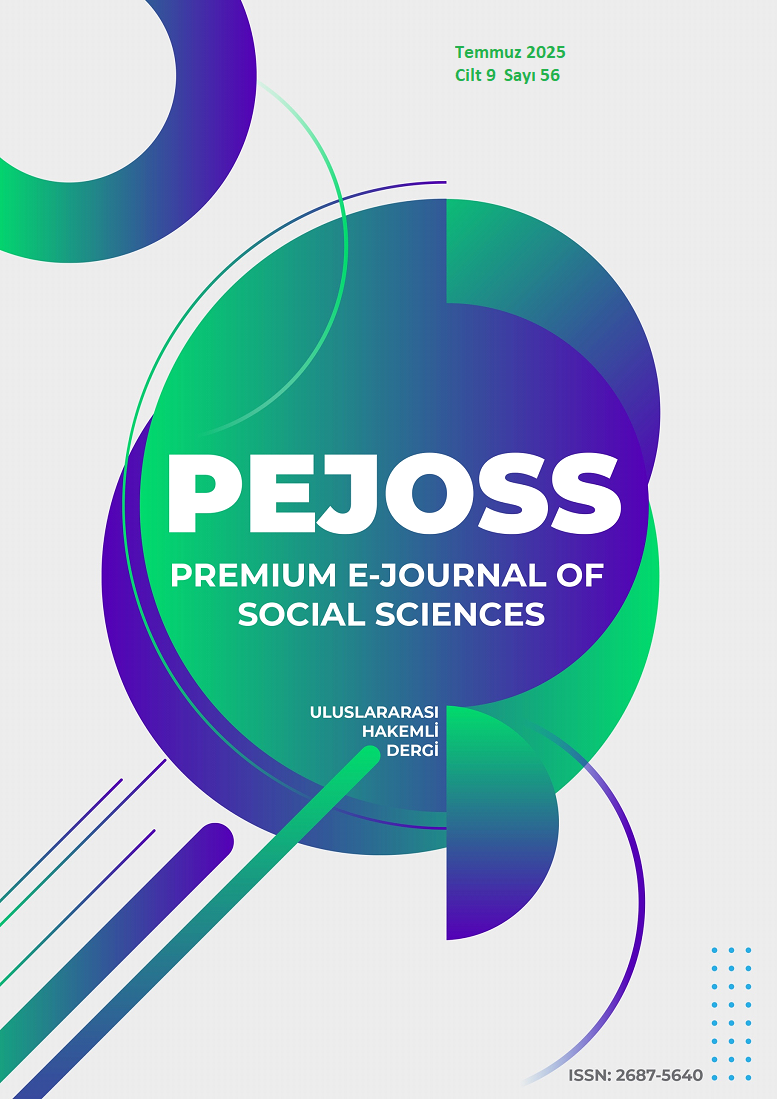The Act of Adultery in Comparative Perspective Under Islamic Law and The Turkish Legal System
DOI:
https://doi.org/10.5281/zenodo.16730319Keywords:
Family Institution, Marriage Contract, Duty of Fidelity, Turkish Legal System, Islamic JurisprudenceAbstract
Although the family has undergone transformations throughout human history, it has consistently remained the fundamental unit of society and its deepest repository of collective memory. The foundation of the family lies not only in cohabitation but also in the assumption of shared responsibilities and mutual fidelity. The breach of this duty of fidelity, which constitutes one of the moral and legal cornerstones of society, gives rise to the concept of adultery. In the Turkish legal system, adultery is not explicitly codified as a criminal offence; however, it is defined as the act of a legally married spouse engaging knowingly and willingly in sexual intercourse with a person other than their lawful partner. In contrast, Islamic law defines adultery (zina) as sexual intercourse between a man and a woman who are not bound by a valid marriage contract. Significant differences exist between Islamic law and the Turkish legal system regarding the definition, constitutive elements, and legal consequences of adultery. While in many societies adultery is viewed as a shameful or sinful act within the framework of moral, cultural, and religious norms, under the Turkish Penal Code it is not recognized as a criminal offence. Instead, it is regarded as a specific ground for divorce under the Turkish Civil Code, with legal consequences confined to the domain of family law. By contrast, Islamic law considers adultery a grave sin (haram) and a highly reprehensible act, prescribing specific punishments that vary depending on factors such as the marital status (married or unmarried) and legal status (free or enslaved) of the perpetrator.
This article is based primarily on Chapter Six, “Comparative Evaluation,” of our master’s thesis entitled “The Act of Adultery in Islamic Law and the Turkish Legal System.” It undertakes a comprehensive analysis of the definition of adultery, the evidentiary system, punitive measures, and the historical evolution of the concept within these two distinct legal frameworks. By considering both theoretical and practical dimensions, the study seeks to emphasize the broader significance of regulating adultery and to contribute to the understanding of its legal treatment within comparative family law. The institution of the family, regarded as the cornerstone of social order in both Islamic jurisprudence and the Turkish legal system, and the duty of fidelity, which is crucial for ensuring family continuity and establishing legitimate lineage, have been the focus of various scholarly inquiries. However, during the preparatory stages of our thesis, it became evident that there was no comprehensive comparative study analyzing the concept of adultery and its position in Islamic and Turkish legal systems. This study therefore seeks to address this gap by providing a detailed and critical comparative analysis of adultery within these two legal traditions.
Downloads
References
Bilmen, Ö. N. (1950). Hukuki İslâmiyye ve Fıkhiyye Kamusu, İstanbul Üniversitesi Yayınları.
Doğan, İ. (2012). Sosyoloji. Pegem Akademi Yayıncılık.
Dönmez, N. (2010). Evlilikte Sadakat Yükümlülüğü ve İhlalinin Hukuki Sonuçları. Ankara Üniversitesi Hukuk Fakültesi Dergisi, 59(1), 6-9.
Dural, M., Öğüz, T. ve Gümüş, M. A. (2020). Türk Özel Hukuku Cilt III Aile Hukuku. Filiz Kitabevi.
Dural, M., Öğüz, T. ve Gümüş, M. A. (2018). Aile Hukuku. Filiz Kitabevi.
El-Buhârî, Muhammed b. İsmail. (1414/1993). el-Câmiʿu’s-Sahîh. thk. Mustafa Dib el-Bugâ. Dâru’l-Fikr.
El-Kâsânî, A. (1986). Bedâi’us-Sanâi’. Dârü’l-Kütübi’l-İlmiyye. c. 7.
Giddens, A. (2005). Sosyoloji. (Çev. H. Özel ve C. Güzel). Ayraç Yayınevi.
İbn Kudame, M. (1994). el-Muğnî. Dârü’l-Fikr, c. 9.
İbn Rüşd. (2015). Bidâyatü’l Müctehid ve Nihâyetü’l-Muktesid. Ensar yayınları.
Kağıtçıbaşı, Ç. (2010). Yeni İnsan ve İnsanlar. Evrim Yayınevi.
Karaman, H. (2007). İslam’ın Işığında Günün Meseleleri. Ensar Neşriyat.
Karaman H. (2016). Mukayeseli İslam Hukuku. İz Yayıncılık (9. Baskı).
Kılıçoğlu, A. M. (2022). Medeni Hukuk Dersleri, Turhan Kitabevi.
Kur’ân-ı Kerîm Meâli. çev. Halil Altuntaş- Muzaffer Şahin. (2009). Diyanet İşleri Başkanlığı Yayınları
Serahsî. (1993). el-Mebsût. Dârü’l-Ma‘rifa, c. 9.
Türk Medenî Kanunu (2001, 8 Aralık). Resmî Gazete (Sayı: 24607). https://www.mevzuat.gov.tr/ mevzuatmetin/1.5.4721.pdf
Yargıtay (21 Mart 2019). Yargıtay 2. Hukuk Dairesi. K. 2019/4321
Yargıtay (23 Şubat 2010). Yargıtay 2. Hukuk Dairesi. K. 2010/2398
Zühayli, V. (1987). İslâm Ansiklopedisi, Beyrut
Downloads
Published
How to Cite
Issue
Section
License
Copyright (c) 2025 Premium e-Journal of Social Science (PEJOSS)

This work is licensed under a Creative Commons Attribution 4.0 International License.


